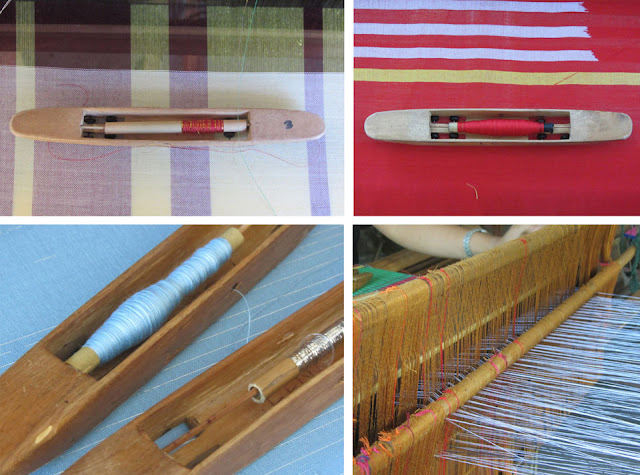Wives of seafarers warned of HIV
Wives were urged to accept that the job of their seaman husbands makes them high-risk for getting Human immunodeficiency virus (HIV), a slowly replicating retrovirus that causes acquired immunodeficiency syndrome (AIDS), a condition in which progressive failure of the immune system allows life-threatening opportunistic infections and cancers to thrive.
This is because open-minded wives are a good support system for their husbands in order to avoid getting HIV. And if he has HIV, the wife can help the husband face the disease, get treatment and live a quality life.
This is the advice given by Charity Perea, regional coordinator for Sexually Transmitted Diseases (STD) of the Department of Health (DOH).
“Some husbands commit suicide or run away from their families because they could not face failing their wives for having the disease. The wife should be practical. She could tell the husband to avoid bringing sickness by giving him a box of condoms. If the wife is accepting, she can tell the husband to get tested. If HIV is seen earlier, the husband can treated. The case will also be treated with confidentiality. Once the husband is registered, he can access many treatments,” Perea said.
She said this is part of her reminder that people need to be educated that people living with HIV (PLWHIVs) should not be feared and discriminated.
“There is nothing to fear from PLWHIVs. Know the basic facts about HIV so that we will all shun off the stigma,” she added.
“It is important that we maintain a mindset of acceptance and love,” she reminded.
RISKS
She added that education on HIV/AIDS will also make people avoid risky sexual behaviour.
“For example, for high students. Knowing about the virus would make them avoid risky sexual behaviors,” she said.
For expectant mothers who have HIV, Perea also assured that the child will not get the virus if the mother is immediately given anti-retroviral drugs (AVR) once tested positive.
“HIV has no vaccine or cure but through anti-retroviral drugs, one can live long and have improved quality of life,” she said.
For nurses who face risks in getting HIV due to pricking, Perea said not to fret.
“If you are pricked, hospitals have prophylaxis that should be taken within 72 hours. You will not get HIV,” she said.
But, she said that most nurses who got HIV are wives of seamen.
TRANSMISSION
Perea said that body fluids that are capable of transmitting HIV are blood, breast milk, seminal fluid and vaginal fluid.
She said that forms of HIV transmission are the following: (1) Blood transmission due to blood transfusion, injecting drug use, body organ donation or needle prick; (2) mother to child transmission through pregnancy, delivery or breastfeeding; and sexual transmission through unprotected vaginal, anal and oral sex.
One has 90-95 percent chance of getting HIV through blood transmission, 23-35 percent change of getting HIV and 98 percent through unprotected sex.
HIV is not contracted through touching, mosquito bites, swimming, use of comfort room, sneezing or coughing.
To prevent HIV, she urged the following practices: (1) abstinence (2) be mutually faithful to uninfected partner (3) close relationship with God (4) correct and consistent Condom Use (5) drug–free and (6) education and early detection and treatment.
“To know if you are HIV-positive, take the HIV Antibody Test. Western Visayas Medical Center is the treatment hub in Western Visayas. If confirmed positive, the person is made to undergo counseling. There he/she is guided on what steps to take. He/she will be enrolled in Philhealth to avail of free medicines. If not, the government has indigency programs to address this. The patient will be asked as to who will be told so that may support group sia,” Perea said.
“Ang mga nagakadto diri sa WVMC kag mahatagan sang counseling, nagapauli man, nakatindog man,” she assured.
She said another treatment hub in Western Visayas is the Corazon Locsin Memorial Hospital in Negros Occidental.
“We have one CD4 machine at WVMC, 16 hospitals with HACT, 14 social hygiene clinics and 83 local AIDS Councils. We also have organized PLHIV support groups and a halfway home at the Sta. Barbara Sanitarium,” she said.
Perea said there are 34 million adults and children estimated to be living with HIV and AIDS as of end of 2012 globally.
The Philippines is among one of only nine countries with increasing HIV cases. In the country, there are 13,179 reported HIV/AIDS cases as of April 2013.
She said the percentage of increase is 11% as of 2007, 54% as of 2008, 58% as of 2009 and 107% as of 2010.
She said that in 2012, there are 8 to 10 new cases a day.
She said that as of May 2013, there are 272 cases of HIV in Western Visayas with Aklan having 28 cases; Antique, 5; Capiz, 22; Guimaras, 4; Iloilo, 121 and Negros Occidental, 92.
Males are at 226 cases while females are at 46 cases.
Those infected are seafarers, 51; domestic helpers, 8; land-based contract workers, 19; paramedical workers, 2; skilled labourers, 7; entertainer, 1; waiters/bartenders, 10; housewives, 18; students, 8; call center agents, 11; tourist guides, 4; businessmen, 8; teachers, 6; lawyer, 1; medical doctors, 4; nurses, 18; medical technicians, 3; x-ray technicians, 2; medical representatives, 5; drivers, 4; nautical graduates, 2; security guards, 2; office employees, 15; self-employed, 9; local entertainers, 3; freelance customer service workers, 3; engineers, 2; fashion designers, 3; event organizers, 2; hotel employees, 2; social worker, 1; hairstylists/beauticians, 6; florists, 3; dance instructors, 3; police, 1; mediaman, 1; information technologists, 3; sales clerks, 3; fastfood/hotel/store managers, 3; grocery bagger; 1; salesman, 1; gasoline boy, 1; machine operator, 1; missionary, 1; bar cashier, 1; house boy, 1; pizza maker, 1; unemployed, 2; accountant, 1 and service crew, 1./
 |
| Photo: Medical News Today |
This is because open-minded wives are a good support system for their husbands in order to avoid getting HIV. And if he has HIV, the wife can help the husband face the disease, get treatment and live a quality life.
This is the advice given by Charity Perea, regional coordinator for Sexually Transmitted Diseases (STD) of the Department of Health (DOH).
“Some husbands commit suicide or run away from their families because they could not face failing their wives for having the disease. The wife should be practical. She could tell the husband to avoid bringing sickness by giving him a box of condoms. If the wife is accepting, she can tell the husband to get tested. If HIV is seen earlier, the husband can treated. The case will also be treated with confidentiality. Once the husband is registered, he can access many treatments,” Perea said.
She said this is part of her reminder that people need to be educated that people living with HIV (PLWHIVs) should not be feared and discriminated.
“There is nothing to fear from PLWHIVs. Know the basic facts about HIV so that we will all shun off the stigma,” she added.
“It is important that we maintain a mindset of acceptance and love,” she reminded.
RISKS
She added that education on HIV/AIDS will also make people avoid risky sexual behaviour.
“For example, for high students. Knowing about the virus would make them avoid risky sexual behaviors,” she said.
For expectant mothers who have HIV, Perea also assured that the child will not get the virus if the mother is immediately given anti-retroviral drugs (AVR) once tested positive.
“HIV has no vaccine or cure but through anti-retroviral drugs, one can live long and have improved quality of life,” she said.
For nurses who face risks in getting HIV due to pricking, Perea said not to fret.
“If you are pricked, hospitals have prophylaxis that should be taken within 72 hours. You will not get HIV,” she said.
But, she said that most nurses who got HIV are wives of seamen.
TRANSMISSION
Perea said that body fluids that are capable of transmitting HIV are blood, breast milk, seminal fluid and vaginal fluid.
She said that forms of HIV transmission are the following: (1) Blood transmission due to blood transfusion, injecting drug use, body organ donation or needle prick; (2) mother to child transmission through pregnancy, delivery or breastfeeding; and sexual transmission through unprotected vaginal, anal and oral sex.
One has 90-95 percent chance of getting HIV through blood transmission, 23-35 percent change of getting HIV and 98 percent through unprotected sex.
HIV is not contracted through touching, mosquito bites, swimming, use of comfort room, sneezing or coughing.
PREVENTION AND CONTROL
To prevent HIV, she urged the following practices: (1) abstinence (2) be mutually faithful to uninfected partner (3) close relationship with God (4) correct and consistent Condom Use (5) drug–free and (6) education and early detection and treatment.
“To know if you are HIV-positive, take the HIV Antibody Test. Western Visayas Medical Center is the treatment hub in Western Visayas. If confirmed positive, the person is made to undergo counseling. There he/she is guided on what steps to take. He/she will be enrolled in Philhealth to avail of free medicines. If not, the government has indigency programs to address this. The patient will be asked as to who will be told so that may support group sia,” Perea said.
“Ang mga nagakadto diri sa WVMC kag mahatagan sang counseling, nagapauli man, nakatindog man,” she assured.
She said another treatment hub in Western Visayas is the Corazon Locsin Memorial Hospital in Negros Occidental.
“We have one CD4 machine at WVMC, 16 hospitals with HACT, 14 social hygiene clinics and 83 local AIDS Councils. We also have organized PLHIV support groups and a halfway home at the Sta. Barbara Sanitarium,” she said.
STATISTICS
Perea said there are 34 million adults and children estimated to be living with HIV and AIDS as of end of 2012 globally.
The Philippines is among one of only nine countries with increasing HIV cases. In the country, there are 13,179 reported HIV/AIDS cases as of April 2013.
She said the percentage of increase is 11% as of 2007, 54% as of 2008, 58% as of 2009 and 107% as of 2010.
She said that in 2012, there are 8 to 10 new cases a day.
She said that as of May 2013, there are 272 cases of HIV in Western Visayas with Aklan having 28 cases; Antique, 5; Capiz, 22; Guimaras, 4; Iloilo, 121 and Negros Occidental, 92.
Males are at 226 cases while females are at 46 cases.
Those infected are seafarers, 51; domestic helpers, 8; land-based contract workers, 19; paramedical workers, 2; skilled labourers, 7; entertainer, 1; waiters/bartenders, 10; housewives, 18; students, 8; call center agents, 11; tourist guides, 4; businessmen, 8; teachers, 6; lawyer, 1; medical doctors, 4; nurses, 18; medical technicians, 3; x-ray technicians, 2; medical representatives, 5; drivers, 4; nautical graduates, 2; security guards, 2; office employees, 15; self-employed, 9; local entertainers, 3; freelance customer service workers, 3; engineers, 2; fashion designers, 3; event organizers, 2; hotel employees, 2; social worker, 1; hairstylists/beauticians, 6; florists, 3; dance instructors, 3; police, 1; mediaman, 1; information technologists, 3; sales clerks, 3; fastfood/hotel/store managers, 3; grocery bagger; 1; salesman, 1; gasoline boy, 1; machine operator, 1; missionary, 1; bar cashier, 1; house boy, 1; pizza maker, 1; unemployed, 2; accountant, 1 and service crew, 1./




